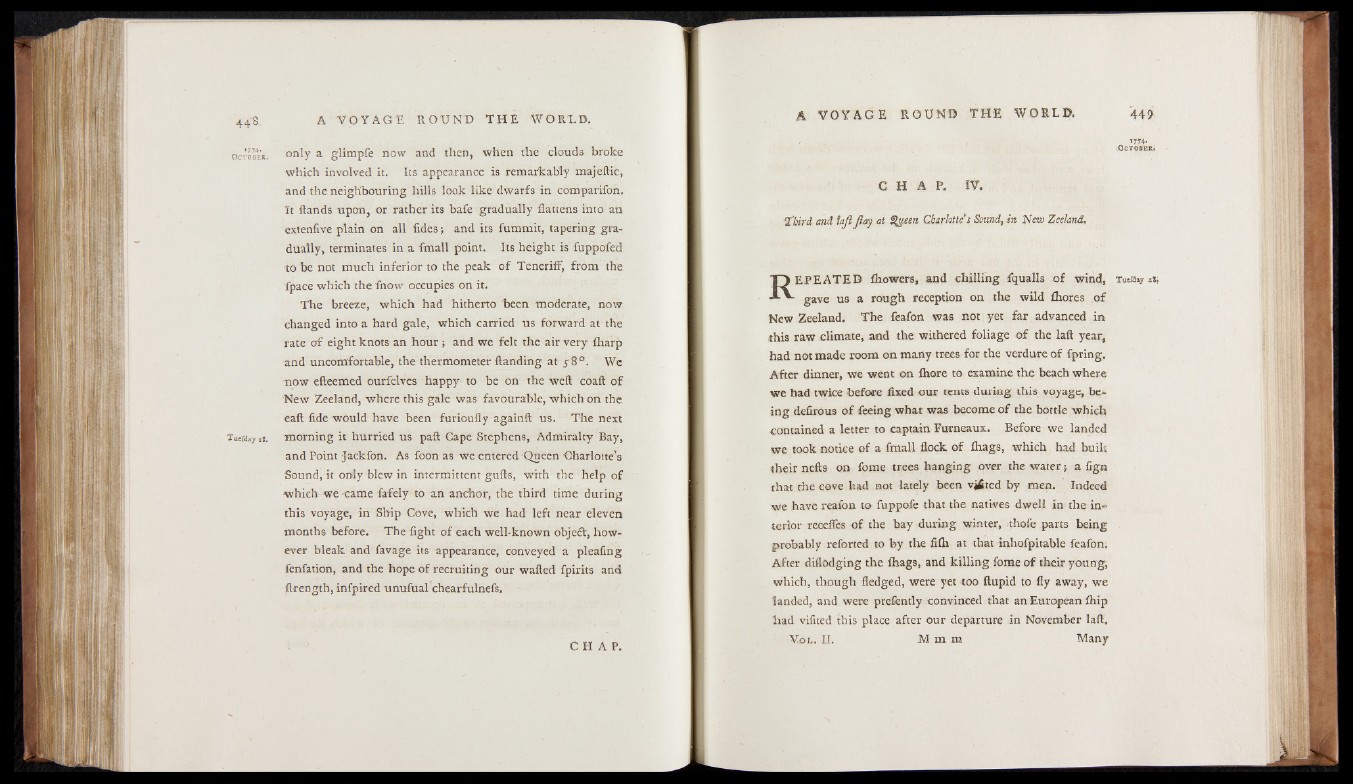
1774.
October.
T u efd a y iJ .
only a glimpfe now and then, when the clouds broke
which involved it. Its appearance is remarkably majeftic,
and the neighbouring hills look like dwarfs in comparifon.
It Hands upon, or rather its bafe gradually flattens into an
extenfive plain on all fides; and its fummit, tapering gradually,
terminates in a fmall point. Its height is fuppofed
to be not much inferior to the peak of TenerifF, from the
fpace which the fnow occupies on it.
The breeze, which had hitherto been -moderate, now
changed into a hard gale, which carried us forward at the
rate of eight knots an hour ; and we felt the air very fliarp
and uncomfortable, the thermometer Handing at 58°. We
now efleemed ourfelves happy to be on the wefl coafl of
New Zeeland, where this gale was favourable, which on the
eafl fide would have been furioufly againfl us. The next
morning it hurried us paH Cape Stephens, Admiralty Bay,
and Point Jackfon. As foon as we entered Queen Charlotte’s
Sound, it only blew in intermittent gufls, with the help of
which we -came fafely to an anchor, the third time during
this voyage, in Ship Cove, which we had left near eleven
months before. The fight of each well-known objedi, however
bleak and favage its appearance, conveyed a pleafing
fenfation, and the hope of recruiting our wafied fpirits and
firength, infpired unufual chearfulnefs.
CH A P .
1774"
.Octo b e r«
C H A P . IV.
1 'ljird and laß fiay at Sueen Charlotte’s Sound, in New Zeeland.
REPEATED fhowers, and chilling fqualls of wind, Tueiaay n,
gave us a rough reception on the wild fhores of
New Zeeland. The feafon was not yet far advanced in
this raw climate, and the withered foliage of the lafi year,
had not made room on many trees for the verdure of fpring.
After dinner, we went on fliore to examine the beach where
we had twice before fixed our tents during this voyage, being
defirous of feeing what was become of the bottle which
contained a letter to captain Furneaux. Before we landed
we took notice of a fmall flock of fhags, which had built
their neHs on fome trees hanging over the water ; a fign
that the cove had not lately been vjfited by men. Indeed
we have reafon to fuppofe that the natives dwell in the interior
recefles of the bay during winter, thofe parts being
probably reforted to by the filh at that inhofpitable feafon.
After diflodging the fhags, and killing fome of their young,
which, though fledged, were yet too ftupid to fly away, we
landed, and were prefently convinced that an European fhip
had vifited this place after our departure in November lafl.
V ol. II. M m m Many